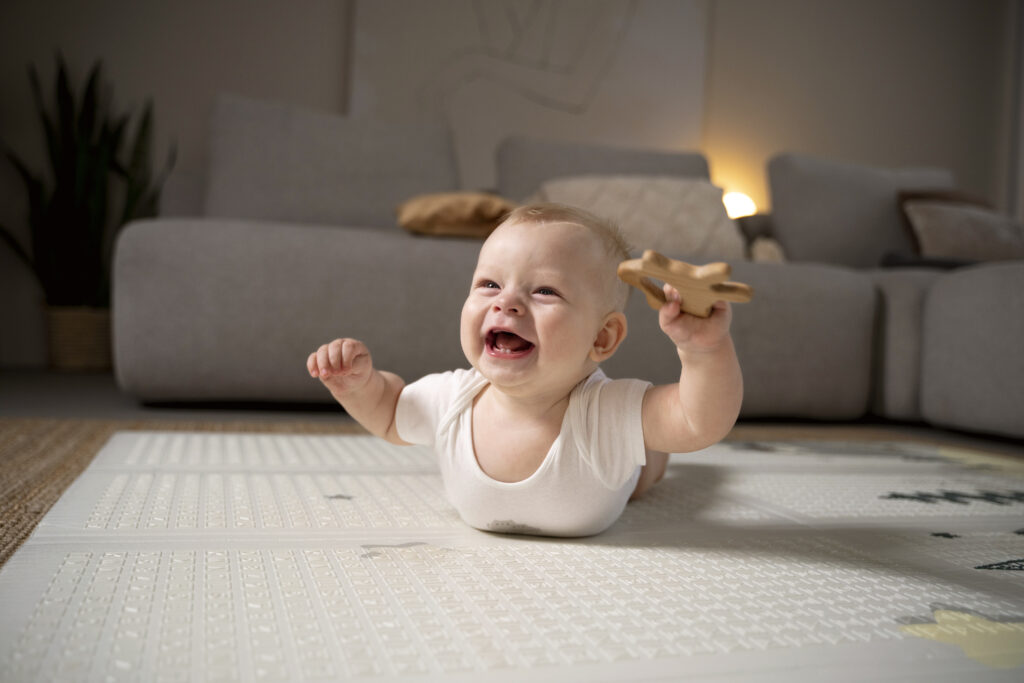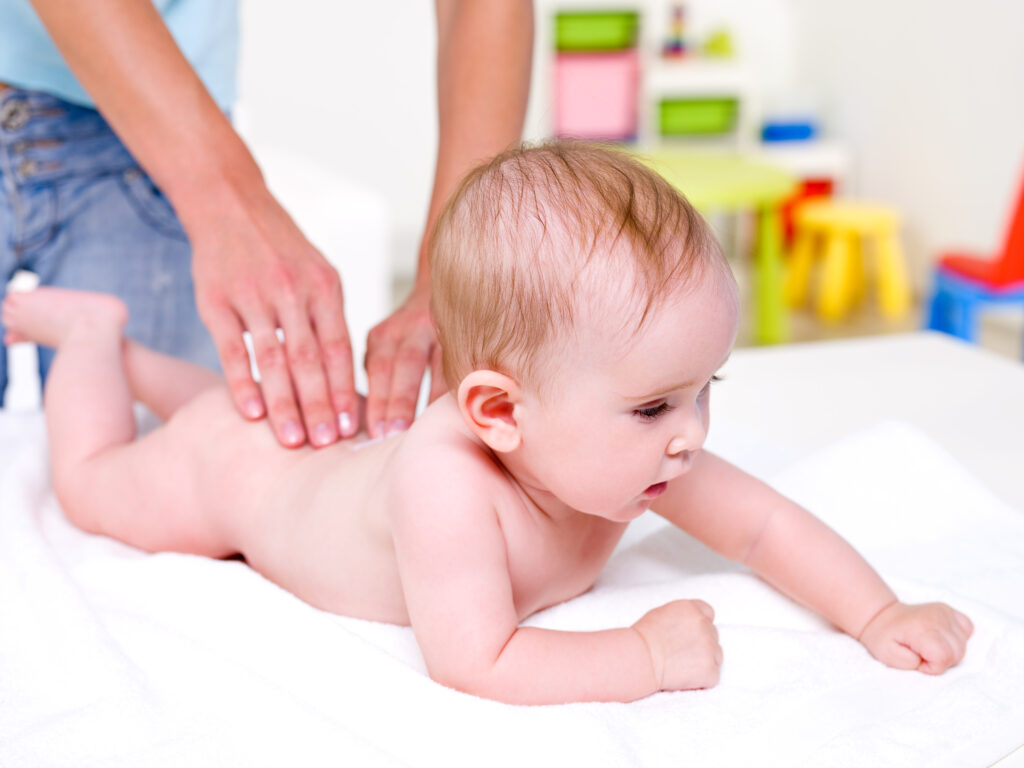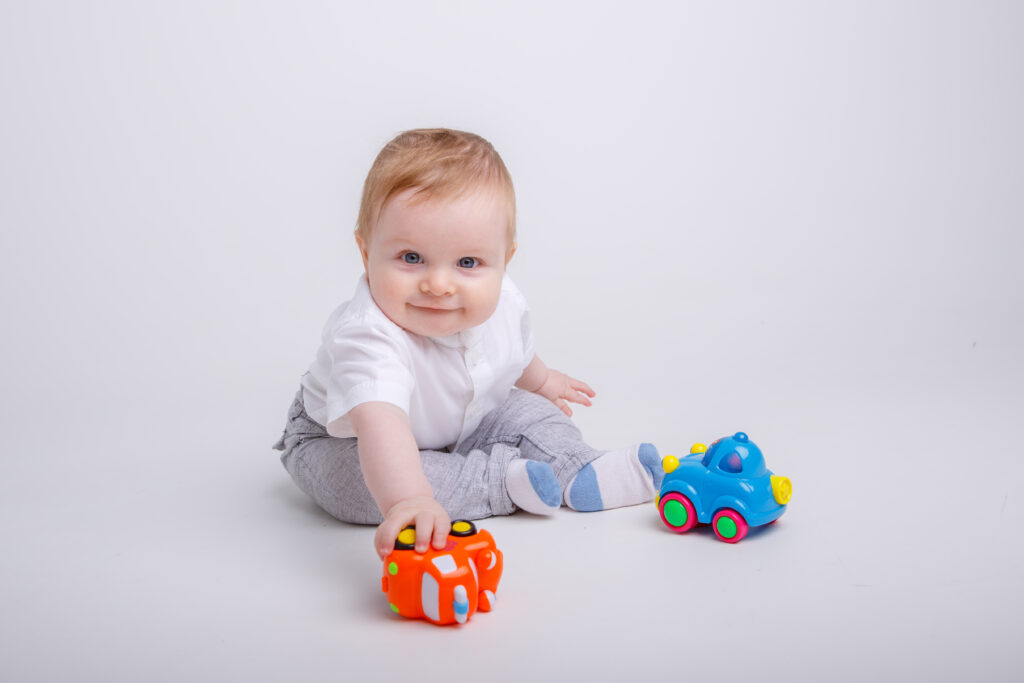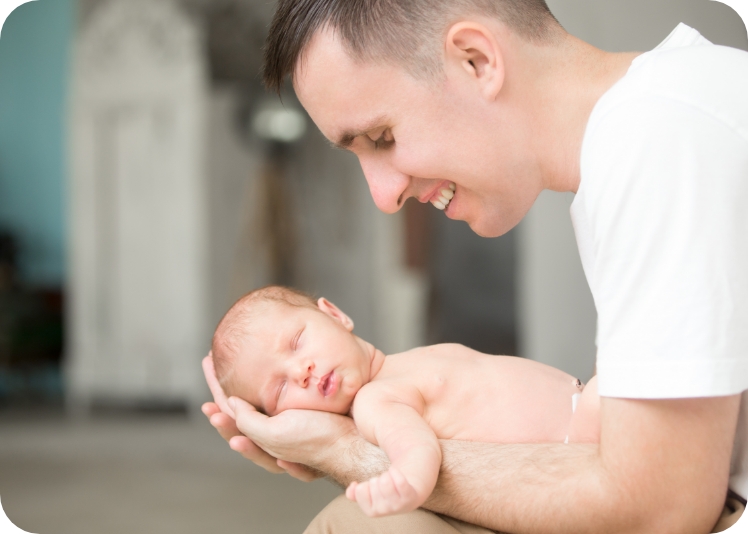Have you ever felt tired, unable to focus, and cranky because you didn’t get enough sleep? On the other hand, do you feel positive, productive, and generally happy when you’ve had a good night’s sleep?
Yes, sleep impacts us in many ways, and a good night’s sleep is crucial for a person’s health. Now babies and infants, sleep directly affects their development.Â
Consider this: a newborn develops a number of milestones in terms of their brain, body, behavior, and emotions, and most of this growth takes place when they are sleeping. Therefore, a child’s growth may be highly hampered if they don’t get enough good-quality sleep.
Given this, it makes sense for parents to make sure their child is getting the rest they require. According to the National Institutes of Health (NIH) and National Sleep Foundation (NSF) –
- a newborn baby aged 0–3 months needs 14–18 hours of sleep each day
- an infant aged 4–11 months requires 12–15 hours of sleep a day
- a toddler aged 1-2 years old requires 11–14 hours of sleep every day
These ranges reflect total sleep time, which also includes naps. These are general suggestions, so your baby’s needs may cause them to change by an hour or two. Remember that a healthy amount of sleep may vary for your baby from day to day or among different newborns. Use these periods as a general reference for the amount of sleep your baby should be getting each day.
How sleep affects your baby’s growth
Have you ever wondered why your baby sleeps the majority of the day and night? This is because this period is critical for the proper development of the body and brain. When your baby sleeps well and isn’t woken up too often, their brain grows, makes connections, and does things that help them learn, think, develop language, and change their behavior.
With the help of sleep and food, a newborn can reach all physical developmental milestones, such as learning to move, recognize objects, make sounds, get bigger, and so on.
Newborn infants typically take multiple naps of 3–4 hours each on a daily basis. Researchers have found that regular naps help babies grow and learn because they help them remember things. When a baby gets older, naps also help to create a more generalized memory, which is crucial for learning and child development.
Here’s why you need to take utmost care of your baby’s sleep. The following health issues are directly related to babies’ and infants’ sleep patterns:
-
Growth
Typically, a baby’s weight doubles after five months and triples by their first birthday. Quality sleep is quite important in this aspect of growth, which is significant for such a short time.
Somatotropin, a growth hormone, is secreted throughout the day by the body. Yet, about 80% of this hormone is released as soon as your newborn enters the non-REM phase of sleep. Lack of sleep might hinder your child’s physical development.
Recent research has shown a connection between body-length growth spurts and more frequent sleep bursts. It was determined that growth spurts both happen and are significantly impacted by sleep. Medical experts and researchers say that this happens because somatotropin is released during sleep.
-
Mental development
Throughout the first year of your little one’s life, their brain roughly doubles in size. They learn much of what they know while they are sleeping, and their mental growth and development happen over time. One study found that babies who got the right amount of sleep had better development scores, while babies who didn’t get enough sleep had more “difficult” personalities.
Your little one requires sleep to develop memory consolidation, just like adults and older children do. Your baby’s memory (about recognizing familiar items and people) and things they have learned while awake are strengthened when they are sleeping. They can analyze and explore their surroundings at their own leisure.
Your baby’s growth depends greatly on getting enough sleep, especially during the first year when they are discovering everything about their body and environment. Even though no two newborns of the same age will have the same experiences, the first year is crucial for all children’s development.
-
Unhealthy weight gain
Research has shown that the shorter amount of sleep that most newborns get is linked to childhood obesity. Studies have found important links between a baby’s first six months of sleep and how they grow and learn. According to another study, most toddlers who slept fewer than 12 hours each day were more likely to be overweight when they entered preschool.
-
Immune system
Since it is still growing, a baby’s immune system is weaker than an adult’s. Their ability to fight infections is greatly influenced by sleep. If your baby doesn’t get enough sleep, especially if they were born early, it can slow their recovery and make them more likely to get sick.
Your baby’s body will be put under a lot of stress if they don’t receive some much-needed, undisturbed sleep. Their immune system creates antibodies and disease-fighting cells while they are sleeping. Lack of sleep prevents their immune system from having a chance to build these forces. They will have a weakened immune system and be far more susceptible to contracting the flu or a cold if they don’t get enough sleep.
How can you ensure your little one gets the sleep they need
- Maintain a sleeping and waking schedule so your little bundle of joy knows what to expect when.
- Swaddle your baby if they haven’t started rolling over yet. This will help them feel safe and comfortable and help them sleep better, especially in the initial weeks and months.
- Play white noise in the background to eliminate disturbing noises and sounds.
- Switch off the lights and close the curtains to create a dark room for afternoon or midmorning naps. This way, your little angel would learn that darkness means it’s time to sleep.Â
- Half an hour before the nap, take away all the toys and remove all the stimulating things from near your baby. An overstimulated baby is likely to have trouble falling asleep.Â
- A little bit of rocking, swinging and shushing will help your baby relax and fall asleep soon. And NO, this won’t spoil them.
In a nutshell
In their first year, your baby requires a lot of sleep. The younger your baby, the more sleep they need. As sleep directly affects your little angel’s growth and development, it’s important that you pay attention to their sleep schedule.Â
If you have trouble with your baby’s sleep pattern, your baby doesn’t seem to have enough sleep, or you have any doubts regarding your baby’s sleep, check out our sleep bot here and get all your questions answered. Happy parenting and happy sleep!








